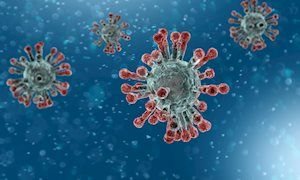
The COVID-19 pandemic in 2020 in Nijmegen and the surrounding area led to a substantial decrease in GP consultations for patients with chronic physical health problems. The number of physical consultations for patients with mental health problems also declined, although the demand for them remained the same. Research from the Radboudumc juxtaposed the number of consultations in 2019 and 2020 and came to a number of conclusions, now published in Annals of Family Medicine.
The researchers examined 25 general practices in and around Nijmegen, with over 26,000 patients. The outbreak of the coronary crisis in March 2020 led to a clear decrease in the number of patients with acute and chronic complaints who reported to the practice. The demand for help with health prevention also decreased.
Decrease in most common health problems
The researchers looked at how common the most common health problems were in 2020, compared to 2019. These problems are fatigue symptoms, high blood pressure, diabetes and ear infections. Nijmegen residents were less likely to report to their family doctor with these complaints in the months of March, April and May of 2020. If these people made an appointment, it happened much more often digitally or by phone than if a patient visited the practice. Whereas in 2019 30% of consultations were non-physical, this rose to 50% in spring 2020.
Number of people with mental health issues remained the same
The number of people who reported with mental complaints such as depression or anxiety remained more or less the same compared to 2019. However, this group was helped much more often via email or phone in 2020, rather than a physical consultation.
Contact your family doctor in case of complaints
GP and researcher at the Department of Primary Care Medicine of the Radboudumc Henk Schers wants to emphasize with this publication that people with chronic conditions should not get out of the picture. "These figures, although only for one city in the Netherlands, show how important it is to pay attention to our vulnerable people. It is inevitable that a lot of attention was and is paid to COVID-19 patients, but we have to keep a grip on people with other complaints as much as possible. That's why we're also appealing: if you have complaints, don't hesitate to contact your GP."
About the publication
Publication in Annals of Family Medicine: The COVID-19 Pandemic in Nijmegen, the Netherlands: Changes in Presented Health Problems and Demand for Primary Care - Henk Schers, Chris van Weel, Kees van Boven, Reinier Akkermans, Erik Bischoff, Tim olde Hartman.
Related news items

Participating in cancer research among people with intellectual disabilities
30 November 2021 Thanks to the support of the Maarten van der Weijden Foundation research was carried out into the participation of people with intellectual disabilities in (population) screening for cancer. go to page
General practice examines treatment and persistent complaints COVID-19 ZonMw grant for three major projects
3 August 2021 ZonMw has granted a total of 4.3 million euros for research into the treatment of COVID-19 and the symptoms that many people continue to have afterwards (Lung COVID). The research group of the department Primary and Community Care Medicine is co-applicant of these research projects. go to page
Henk Schers appointed professor of Regional Network Formation of General Practice
14 July 2021 His research focuses on innovations in the collaboration between healthcare providers from inside and outside the hospital go to page
Grants for science communication at Radboudumc
22 April 2021 Scientists at the Radboudumc have received two KNAW grants, each worth 10,000 euros, for science communication. With the new fund, KNAW underlines importance of making science accessible. go to page
